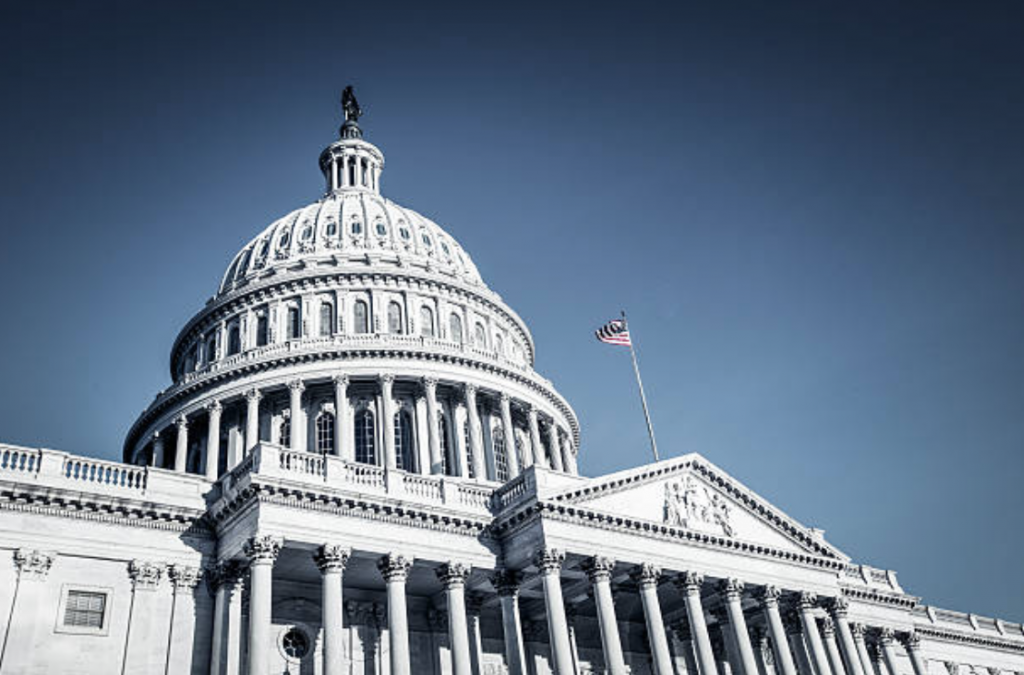
WASHINGTON – The United States Senate today passed a broad, anti-opioid abuse package that includes 12 bipartisan legislative efforts led and co-sponsored by Senator Chuck Grassley of Iowa, chairman of the Senate Judiciary Committee and Senate Caucus on International Narcotics Control.
The Centers for Disease Control and Prevention recently reported that two-thirds of drug overdose deaths between 2015 and 2016 were opioid-involved overdoses. The Iowa Department of Public Health estimated that more than 200 Iowans died from opioid misuse in 2017.

“Families and communities in Iowa and throughout the country have seen and felt the devastation of rampant opioid addiction,” Grassley said. “There is no quick fix, but the passage of this bipartisan anti-opioid abuse package is a big step in the right direction that will help millions of Americans impacted by this terrible epidemic.”
A list of bipartisan legislative efforts in the fight against opioid abuse both led and co-sponsored by Grassley is available below.
S.2923 Building Capacity for Family-Focused Residential Treatment Act
S.2923 would help child welfare agencies, treatment centers or non-profit organizations establish evidence-based, family-focused residential treatment programs in order to prevent kids from being placed in foster care while parents are in rehabilitation centers due to opioid abuse.
S.2908 Electronic Prior Authorization in Medicare Part D
S.2908 would require that Part D e-prescribing systems allow for processing of formulary prior authorizations using a standard format for secure electronic transmissions of prior authorization requests from a prescribing health care professional for a covered Part D drug and a response from the plan to the prescribing professional.
S.2891 Fighting the Opioid Epidemic with Sunshine Act
S.2891 will require drug companies and medical device makers to publicly disclose the same payments made to nurse practitioners and physician assistants for promotional talks, consulting and other interactions.
S.2645 Access to Increased Drug Disposal Act of 2018
S.2645 will encourage increased participation of authorized collectors in drug take back programs by awarding grants to states. It will focus particular attention on states within the lowest quartile of participation in take back programs.
See also: Drug take back programs can fight the growth of opioid addiction
S.2535 Opioid Quota Reform Act
S.2535 will empower the Drug Enforcement Administration (DEA) to consider additional factors when setting annual quotas for opioid drug production in the United States. Currently, DEA can only consider past sales and estimated demand. This bill allows the agency to take into account diversion, abuse, overdose deaths and public health impacts when setting quotas.
S.2789 Substance Abuse Prevention Act
S.2789 will reauthorize the Office of National Drug Control Policy (ONDCP), keeping the Drug-Free Communities (DFC) and High-Intensity Drug Trafficking Areas (HIDTA) programs within that agency. It will also boost public awareness of opioid and heroin addiction as authorized under the Comprehensive Addiction and Recovery Act (CARA); provide resources for families to stay together when one is battling substance abuse; and require the Attorney General and the Dept. of Health and Human Services to complete a plan for educating and training health care providers in best practices for prescribing controlled substances.
S.207 Synthetic Abuse and Labeling of Toxic Substances (SALTS) Act of 2017
S.207 will close a legal loophole that inhibits the prosecution of opioid analogue traffickers by clarifying when a controlled substance analogue is or is not intended for human consumption.
S.2837 Preventing Drug Diversion Act of 2018
S.2837 will amend the Controlled Substances Act to define “suspicious order” and will require registrants to design a system to identify suspicious orders, and notify DEA of those orders.
See also: Grassley: DEA Must Explain Objections to Bill it Helped Write in Fight against Opioid Abuse
S.2838 Using Data to Prevent Opioid Diversion Act of 2018
S.2838 will require DEA to use anonymized data to track and prevent the diversion of prescription opioids into illegal sales. The data will be available to registrants, and will include the total number of distributors serving a single pharmacy or practitioner and the total number of opioid pills distributed to a single pharmacy or practitioner.
More information available here.
S.2901 Expanding Telehealth Response to Ensure Addiction Treatment (e-TREAT) Act
S.2901 will increase access to substance use disorder treatment through telehealth technology in Medicare.
S.2912 Opioid Addiction Treatment Programs Enhancement Act
S.2912 will require HHS to report on the prevalence of substance use disorders in Medicaid. This annual report will include the number of people in Medicaid with a substance use disorder and the number of services provided to these individuals. The reporting will be uniform across managed care, fee for service, and state waivers. The data will be made available to researchers in anonymized manner. Understanding the scope of substance use disorder as well as understanding what therapies work will provide invaluable information to policy makers as they fight the opioid epidemic. Currently, there is no comprehensive database for this information in Medicaid.
S.2921 Securing Flexibility to Treat Substance Use Disorders Act
S.2921 will improve access to care for people with substance use disorders that require inpatient services.
In 2016, Grassley led the Comprehensive Addiction and Recovery Act (CARA), a sweeping addiction recovery bill aimed at addressing the nation’s growing heroin and opioid addiction epidemic, through the Senate. The bill, which later became law, included a number of Grassley provisions to assist in the fight against methamphetamine.







Can alcohol same treatmean sense more people die from it then opiates
BUILD THE WALL !